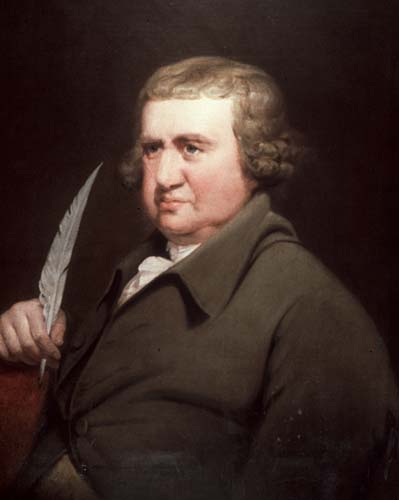December 12: Erasmus Darwin
Erasmus Darwin (1731)
Organic life beneath the shoreless waves
Was born and nurs'd in ocean's pearly caves;
First forms minute, unseen by spheric glass,
Move on the mud, or pierce the watery mass;
These, as successive generations bloom,
New powers acquire and larger limbs assume;
Whence countless groups of vegetation spring,
And breathing realms of fin and feet and wing.
—Erasmus Darwin, The Temple of Nature, 1802.
It was on this date, December 12, 1731, that British physiologist, and grandfather of Charles Darwin, Erasmus Darwin was born in Nottinghamshire. He was educated at Cambridge and Edinburgh. His medical practice became so respected that he was invited, though he declined, to be personal physician to King George III. Erasmus Darwin was also a well known poet, philosopher, botanist, and naturalist. He founded the Philosophical Society in Derby.
"In regard to religious matters," he wrote, "there is an intellectual cowardice instilled into the minds of the people from their infancy; to inquire or exert their reason is denounced as sinful."* Erasmus Darwin helped to revive interest in the old Greek idea of evolution with his Deistic Zoonomia (1794), which was written in verse. The Temple of Nature, published posthumously (1802), and also written in verse, further explored evolutionary ideas that were adopted and expanded by his grandson some 60 years later.
He died on 18 April 1802 at age 70, six years before Charles Darwin was born. It was Erasmus Darwin who said, "Many theatrical preachers ... successfully inculcate the fear of death and hell, and live luxuriously on the folly of their hearers. The latter have so much intellectual cowardice that they dare not reason about those things which they are directed by their priests to believe."**
* Quoted in Rufus K. Noyes, Views of Religion, 1906. ** Quoted in James A. Haught, 2000 Years of Disbelief, 1996.
Originally published December 2003.


